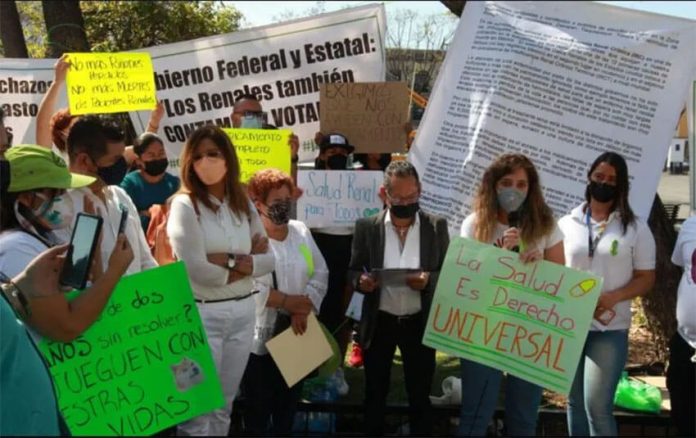People with kidney problems and kidney transplant recipients have faced a shortage of medications in the public health system for the past five years, and the situation appears to be getting worse.
According to patients’ testimonies cited by Radio Fórmula, there is a shortage of mycophenolic acid, sirolimus, tacrolimus and ciclosporin, which are all immunosuppressants used by kidney transplant recipients. There is also a shortage of some drugs used by people on dialysis, and the price of others is prohibitive in many cases.
Cero Desabasto (Zero Shortage), a group that monitors the availability of medications in the public health system and pressures the government to keep up the supply, reported that kidney transplant patients lodged 157 complaints about the lack of medications in the second quarter of last year. Shortages have been reported at public hospitals in Mexico City, México state and Jalisco.
Mexico City resident Paola Jaguey, whose body rejected a transplanted kidney because she couldn’t access the medications she needed, said that shortages began in 2017 but were limited to some hospitals.
“Now the shortage is at a national level,” Jaguey said.

Ileana Durán — a 39-year-old, two-time transplant recipient who has had kidney problems since she was nine — also said that shortages began in 2017, before worsening the following year.
“This isn’t a new issue. We’ve been seeing it for five years. I never lacked anything before, maybe [the medications] were of a lower quality, but they were available. Today they’re not,” she said.
Durán, who created a network that helps kidney patients get the medications they need, said that the problem has been raised with lawmakers but no progress has been made. Kidney patients are “completely forgotten,” she said.
Protests against the shortages were scheduled to be held Thursday – World Kidney Day – in several states, including Jalisco, Puebla and Baja California.
At a protest outside the federal Chamber of Deputies in Mexico City, Paola Soria, 29, told the newspaper Reforma that her body rejected the kidney she received from her mother because she couldn’t get the drugs she needed from the Mexican Social Security Institute (IMSS), a major health care provider.
As a result of losing the kidney last year, Soria has to undergo dialysis at least three times a week. She said that the medication she needs to take to avoid anemia while on dialysis isn’t available at her local IMSS hospital on the south side of Mexico City and she thus has to pay for it out of her own pocket.
Daniel Pérez, another of the approximately 30 kidney patients at the Mexico City protest, said that he feared he would lose the kidney his father gave him two years ago due to the lack of immunosuppressants.
He said that the IMSS La Raza hospital in the capital was unable to fill his prescription for an immunosuppressant on six occasions last year. “It costs 4,000 pesos [US $190] a jar, and I need two jars a month,” Pérez said.
Children with cancer, whose parents have protested on countless occasions in recent years, have been the most visible victims of drug shortages, but HIV patients and adult cancer patients, among others, have also faced difficulties in getting the medications they need.
With reports from Radio Formula and Reforma
